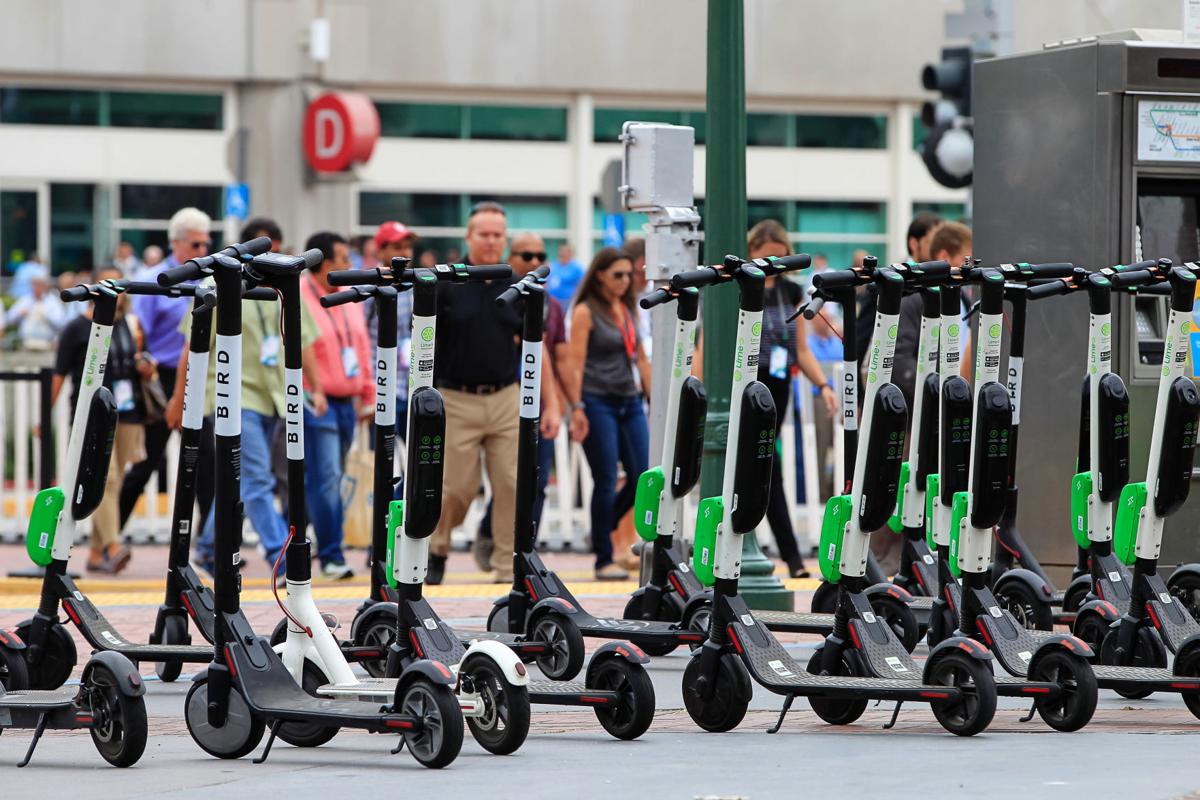A pilot program that would have allowed up to 2,000 dockless electric scooters to operate legally on city streets has been scrapped by the Tucson City Council.
A push to tighten controls on where companies like Bird or Lime could distribute their e-scooters as well as where they would be allowed to operate were some of the concerns voiced by a majority of the Council recently.
By sending the pilot program back to staff for revisions, the move will delay when e-scooter companies will start distributing them in the Old Pueblo for at least several months.
A revised proposal is not expected to go before the Council until next month, and staff indicated a formal bid process would take several months to decide which companies would be allowed to operate under the six-month pilot program.
Councilman Steve Kozachik leveled some of the harshest criticism of the staff proposal last week, saying he had concerns that scooters would flood Tucson streets and litter the right of way.
Kozachik noted that the city already doesn’t have the staffing to deal with shopping carts lying around in Tucson neighborhoods and 2,000 electric scooters is only going to add to the problem.
He pushed for even higher fees for e-scooter companies, pointing to how San Francisco is charging companies $25,000 for an annual operating permit. City staff suggested a $10,000 permit fee, which would generate an estimated $428,000 annually into city coffers.
“This isn’t going to be any great windfall for us,” Kozachik said.
Kozachik, whose ward includes downtown Tucson, Fourth Avenue and the University of Arizona, says he is concerned about accidents.
“I can’t see these things riding in the street with traffic, with the streetcar, with pedestrians, with bikes, 15 miles per hour in those congested areas being anything but a huge red flag and an accident waiting to happen,” Kozachik said.
The Arizona Republic reported last week that in Tempe alone, the fire department there responded to more than 100 accidents since e-scooters showed up in May.
Councilman Paul Cunningham added that any permit must include airtight language that protects the city from a future lawsuit stemming from accidents involving the e-scooters.
“I don’t want to be in a situation where a Bird customer runs someone over on one of our sidewalks, and the city is sued,” Cunningham said.
But he pushed back on higher fees, saying that it could price out smaller companies.
“If we make our fee just too high, Lime and Bird will just corner the market,” Cunningham said.
While he wants to see tweaks to the proposed pilot program, Cunningham said he wants e-scooter companies to eventually operate in Tucson.
“The way the city is laid out with the transit system we have, the Birds, the Limes and other independent operators of these companies can actually be an asset if they are good community partners,” Cunningham said. “I don’t want to be the only city in the town that doesn’t have this.”
Kozachik argued that permit fees aren’t going to be an issue.
“Increasing the fees aren’t going to corner the market,” Kozachik shot back, noting San Francisco had 10 companies vying to operate in the city’s program.
He reminded his colleagues that e-scooter companies were poised to come into Tucson without contacting the city and this program is the only way to regulate them.
“This whole conversation began not because Bird and Lime announced that they wanted to be good partners with us; it was because we found out that they were hiring, and we were concerned that they were going to dump 1,000 — each — of these scooters in our city,” Kozachik said. “So we sent the message out proactively that they are illegal here.”
Mayor Jonathan Rothschild wondered whether 2,000 scooters would be too many for the city.
“Two thousand scooters seems like way too much for a pilot program,” Rothschild said.
He also asked staff about the possibility of using geo-fencing — limiting or disabling the e-scooters based on their GPS location — in an attempt to minimize their use in crowded areas where they would be dangerous to operate.





